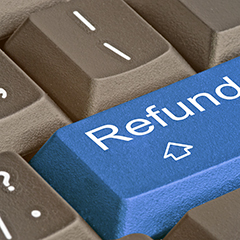Overpaid Sales and Use Taxes?
January 12, 2016 | Accounting Standards, Financial Planning, Tax Planning, Tax Preparation
 Overpayments of sales and use taxes may be caused by various situations. For example, retailers and suppliers have been aggressive about charging sales tax to avoid audit deficiencies because field auditors in many states, like Maine, have become more aggressive about assessing taxes, interest, and penalties.
Overpayments of sales and use taxes may be caused by various situations. For example, retailers and suppliers have been aggressive about charging sales tax to avoid audit deficiencies because field auditors in many states, like Maine, have become more aggressive about assessing taxes, interest, and penalties.
Sales tax may be charged in some cases even when a sale is exempt, or the tax may have been inappropriately charged because no exemption claim was made or an invalid exemption certificate was submitted. In either case, the purchaser ends up paying tax that was not legally due.
To make matters worse, many organizations operate across state lines outside of Maine, which multiplies their tax compliance responsibilities. Your company may have internal compliance controls, but they may not be able to keep up with the changing landscape due employee turnover, expansion, or other factors.
If you are a Maine-based company, you may want to consider a “reverse sales and use tax audit” to see if you would benefit. Don’t confuse this with the audits performed by state revenue auditors looking to see if sales or use taxes were underpaid. In a “reverse audit,” a tax professional looks to identify and recover tax overpayments.
If you elect to perform this audit, your tax firm should take a comprehensive look at your organization’s activities and transactions. They can assist you by looking for refund opportunities, identifying weaknesses in your sales and use tax compliance system, and offer recommendations on how you can improve.
